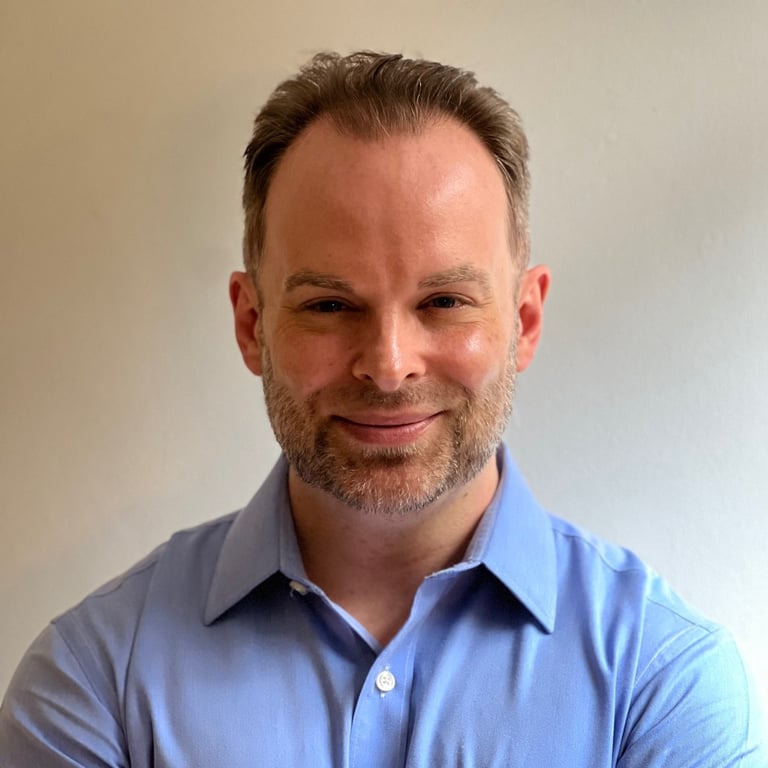The Personal Finance of Career Independence
For many highly skilled workers, the benefits of going freelance may outweigh the risks—especially right now. Toptal’s Chief Economist explains why, and reveals what he wishes he’d known when he stepped out on his own.
For many highly skilled workers, the benefits of going freelance may outweigh the risks—especially right now. Toptal’s Chief Economist explains why, and reveals what he wishes he’d known when he stepped out on his own.
Erik is a data scientist and a founding partner of the global venture firm Firstrock Capital. He helps companies, universities, and governments across the Americas build business and technology strategies. Erik has an MBA with distinction from Harvard University and serves as Chief Economist at Toptal.
PREVIOUSLY AT

For too long, career independence has been viewed by many Western workers as an elusive dream—one that lies beyond a gantlet of nebulous risks. But this outdated collective view of the economic landscape is on par with medieval maps that warned of menacing monsters lurking beyond the less explored frontiers, back when “freelancers” were literal lance-bearing mercenaries.
Going freelance is often seen as riskier than it actually is, and the traditional full-time career path often gets more credit than it deserves. Especially in this moment, when skilled workers are in high demand and companies of all sizes increasingly rely on independent talent.
My own path to professional independence began in 2008, when I watched hundreds of my fellow financial risk managers and so many others with seemingly strong and safe careers lose their homes, jobs, and investments in the subprime mortgage crisis. Meanwhile, the independent, entrepreneurial people I knew were much more agile and prepared to weather the global economic shakeup.
The phrase “risk/reward” is a false dichotomy. There is only change, and that change can take the form of risk or reward depending on how you position yourself.
Crises shatter illusions and force you to decide what you really want and who you really are. The Great Recession made me decide that I would no longer attempt to control risk but rather set myself up to gain from uncertainty and change by choosing career independence. It is clear that in the wake of the COVID-19 pandemic, many people now find themselves at a similar crossroads.
While professional independence involves more than financial considerations, understanding the true economic implications and possibilities helps ensure the best possible approach to this life-changing decision. What follows is a holistic view of the key ways through which the economics of your life can tectonically shift when you step out on your own, based on what I have discovered on my own nine-year freelance journey.
Related: The Ultimate Freelance Guide—How to Start and Manage a Freelance Business
The Income Risks of Career Independence Are More Perceived Than Real
While many people love the idea of going freelance, their first concerns are almost always about the loss of a guaranteed income when leaving a full-time job, and the uncertainty of seeking out clients and building a customer base.
In truth, the income risks of freelancing versus holding a full-time job are simply more visible rather than greater. Income may fluctuate for independent contractors, but there is far less risk that earnings will abruptly drop to zero—the way they would if a full-time employee were laid off unexpectedly.
Freelancers are also able to directly influence their own income flows by networking, upskilling, and seeking out more clients. While similar efforts may help increase the chance of promotion within a traditional career, employees have little direct control, since advancement often falls within the context of a rigid structure of merit increases, budgets, and office politics.
Professional Independence Lets You Build Wealth Strategically
While working in New York as an economist and risk manager, I was, ironically, rather detached from my own financial circumstances and possibilities. I went through the motions of saving and investing—but without any deeper sense of my goals and the means to better reach them. My finances simply existed in the background of my day-to-day life.
When I went independent, my mentality shifted profoundly: I was now the only one responsible for my finances, which was daunting at first but then utterly liberating. I paid attention to my own wealth creation in a way I never had before, which led to ideas for projects and multiple income streams that I had previously overlooked.
Think about a financial investments portfolio. The best ones are diverse, with different asset classes offering varying degrees of risk/reward and income versus growth. Career independence allows you to pursue this same strategy with a portfolio of your most valuable investment—your time. When you control your income and schedule, you can choose to apply your expertise and creativity to a project that can vastly expand your earnings potential: writing a book, founding a company, inventing a product, or establishing an online presence to share your knowledge with a global audience.
Full-time, traditional careers can condemn such projects to perpetual underinvestment in time, while independence allows for strategically balancing monthly income with real progress on long-term, large-scale undertakings. Many of the world’s most sophisticated investment firms invest a portion of their capital in low-risk, income-generating assets to support their more aggressive bets; financial managers know that some of the big bets will pay off eventually.
Contingent Staffing Networks Can Provide a Near-instant Client Base
When I went freelance, I thought that the fastest and most lucrative way to ramp up my client list would be to call my former contacts in the New York finance world and build my base from there. They had deep pockets and would surely send business my way.
But I soon discovered that there was an entire global network that could plug me into a ready-made client base: the contingent staffing industry. There were three key reasons I decided it would be more economically sound from a long-term, risk-adjusted standpoint to sign with a freelance talent platform. First, it would allow me to focus on doing the work that I loved without concerning myself with all the necessary evils, such as legal contracts and accounts receivable.
Second, I knew that being part of a global network would also provide more diversity of clients across geography, industry, and technologies, which was beneficial for learning, networking, and risk management. Since I joined Toptal as a freelance finance expert in 2017, I have helped companies build healthtech products to fight leading causes of death, create fintech products for financial inclusion, build platforms for more sustainable and authentic adventure tourism, leverage AI for industrial IoT, and much, much more.
Finally, I hoped that joining a talent network could provide a community of similarly ambitious and talented people with whom I could collaborate. I was right: One of my fellow network members and I recently co-presented on the issue of cybersecurity at a major CIO conference. We live on opposite sides of the globe and have the most different backgrounds and life stories imaginable, but the network allowed for instant connection and trust. What I’ve learned from our collaboration has been invaluable.
Related: Apply to Join the Toptal Freelancer Network
Career Independence Reduces Cost of Living While Increasing Quality of Life
Remote freelancing allows you to think strategically about where you live—both in terms of finance and quality of life. I would not have co-founded a venture capital fund if I were immune to the allure of exceptional investment returns. Just as important to me, however, was becoming a citizen of the world, which has allowed me to reduce my cost of living while increasing my quality of life.
I established a second home in South America that allows me to spend significant portions of the year in a place that I have come to love. The cost of living here is a fraction of what it is in New York City. My daily expenses are lower, I have access to exceptional and affordable health insurance, and there can even be occasional tax benefits.
Unsurprisingly, the reduced stress and enhanced well-being of designing the life that truly resonates with you affects productivity as well. If I’d had a brain scan before beginning this international journey and compared it to one today, I would almost certainly see the effects of prolonged immersion in another culture and language. The benefits of bilingualism for brain health are well noted, including unlocking further creativity and guarding against Alzheimer’s disease.
The most successful people I know approach their geographical or country “portfolio” with the same seriousness as their financial portfolio. They often do so for reasons beyond economics, such as establishing ties with their ancestral homeland or satisfying their wanderlust. But these factors always seem to exist in a reinforcing cycle with economics.
Demand for Freelance Talent Just Keeps Growing
Thanks to the accelerating adoption of open talent by companies around the world, demand for skilled freelancers is at an all-time high—and rising.
Nearly two-thirds of executives in a 2019 SAP Fieldglass report said that contingent workers are important or extremely important for operating at full capacity and meeting market demands. Most recently, a 2021 survey by Randstad Sourceright, a global talent acquisition consultancy based in Amsterdam, found that 56% of human resources and C-suite executives say they plan to shift more roles to freelance, project, or contract work in the future.
Even with scores of workers going freelance, there is more than enough work to go around—especially in high-demand areas such as software engineering, cybersecurity, project management, design, finance, and healthcare.
Career Independence Turns Risk Into Reward
My own 15-year experience in managing extreme risk/reward circumstances from diverse angles has led me to conclude that even the phrase “risk/reward” presents a false dichotomy. There is only change, and that change can take the form of risk or reward, depending on how you position yourself.
We live in a rapidly changing world in terms of both markets and technology, and within that context, a more stationary approach to work is increasingly risky. Risk is unavoidable in today’s technological and economic landscapes, and the question is: What type of risk are you willing to accept?
The risk that comes with going independent may seem uncomfortable at first—and the transition entails substantial effort. But it is preferable to the more hidden but ever-accumulating risk of remaining too stationary and comfortable while so much changes around you. You have everything to gain and only your commute and cubicle to lose. Workers of the world, free yourselves.
Further Reading on the Toptal Blog:
- Managing Remote Freelancers? These Principles Will Help
- Living His Best Life: David Nuff’s Inspiring Freelance Success Story
- Effective Startup Boards: What They Are and How to Build Them
- Python and Finance: Power Up Your Spreadsheets
- The Role and Responsibilities of the Modern CFO: A Function in Transition
Erik Stettler
New York, NY, United States
Member since November 21, 2017
About the author
Erik is a data scientist and a founding partner of the global venture firm Firstrock Capital. He helps companies, universities, and governments across the Americas build business and technology strategies. Erik has an MBA with distinction from Harvard University and serves as Chief Economist at Toptal.
PREVIOUSLY AT





